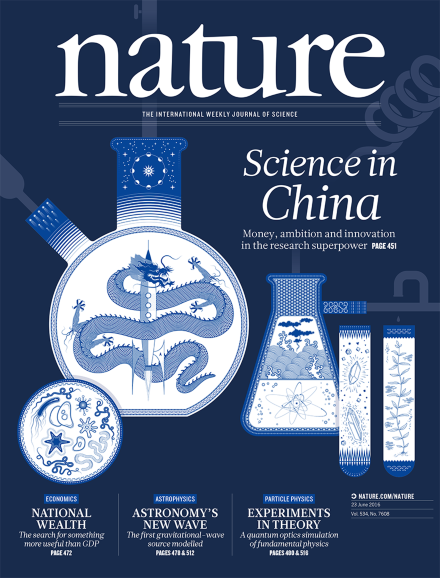Volume 534 Issue 7608, 23 June 2016
Editorial
World View
Research Highlights
Seven Days
News
Correction
News Feature
-
China by the numbers
Special:
-
Science stars of China
Collections:

